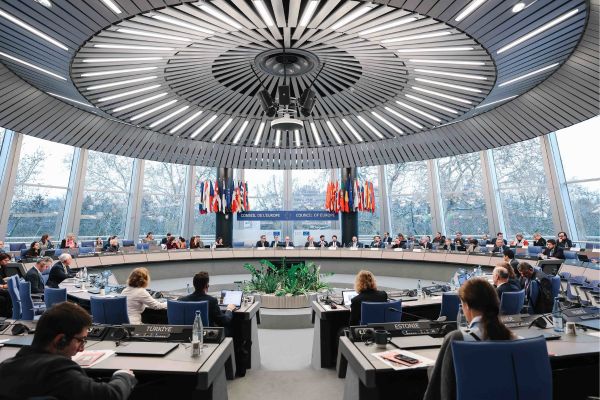 Credit: Council of Europe/Abdesslam Mirdass
Credit: Council of Europe/Abdesslam Mirdass
Luxembourg’s Ministry of Culture has reported that it recently organised a conference on the theme "Without culture, no democracy" at the Council of Europe headquarters in Strasbourg, France.
The event was organised on Thursday 12 December 2024 as part of Luxembourg’s Presidency of the Committee of Ministers of the Council of Europe and on the occasion of the 70th anniversary of the European Cultural Convention.
Luxembourg’s Minister of Culture, Eric Thill, gave the opening speech in which he recalled the fundamental importance of culture as a pillar of democracy and human rights: "Culture is a driving force for creativity and critical thinking, and it constitutes an essential transversal element to counter democratic setbacks and promote our common values."
The conference highlighted the intrinsic links between culture and democracy, particularly freedom of artistic expression, which the ministry noted is a key element in promoting understanding and preserving diversity and pluralism in Europe. Minister Thill stressed the central role of artists in democratic and societal development, while calling for greater recognition of the contribution of culture to the implementation of decisions taken at the summit of heads of state and government, held in Reykjavík (Iceland) in 2023. The aim of the summit was to strengthen the Council of Europe and its action in the field of human rights, democracy and the rule of law.
Political representatives at the event included Alain Berset, Secretary General of the Council of Europe, Ministers of Culture, Mykola Tochytskyi (Ukraine) and Owen Bonnici (Malta). The programme also included a round table on freedom of artistic expression with artists and cultural researchers from Belarus, Ukraine, Germany and Luxembourg. Luxembourg was represented by artist Filip Markiewicz.
Led by Luxembourg, the current Presidency of the Committee of Ministers intends to strengthen the role of culture as an essential element for democracy and as a key competence of the Council of Europe. Through this commitment, it aims to position freedom of artistic expression as a flagship project within the organisation.
Adopted in 1954 and entered into force in 1955, the European Cultural Convention is one of the first treaties of the Council of Europe. It reflects the commitment of the Member States to promote common ideals and principles through cultural and educational cooperation. According to the Ministry of Culture, "this vision remains more relevant than ever as Europe faces unprecedented challenges to democracy and fundamental rights."








